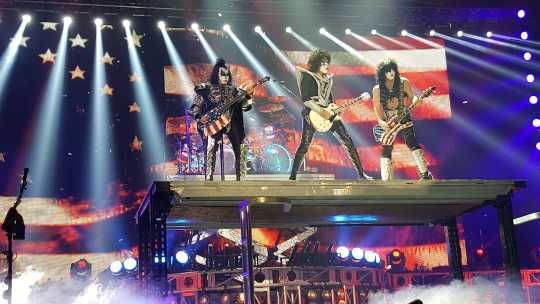Broadway musicals have been a cornerstone of American culture for over a century, captivating audiences with their dynamic performances, catchy tunes, and captivating storylines. From the early days of vaudeville to the modern era of big-budget productions, Broadway musicals have played a significant role in shaping pop culture and influencing entertainment trends around the world.
The roots of Broadway musicals date back to the late 19th century, when vaudeville shows featuring song and dance routines became popular in New York City. These shows often incorporated comedy, music, and drama, creating a unique form of entertainment that appealed to a wide audience. It was during this time that iconic composers like George Gershwin and Irving Berlin began their careers, laying the foundation for the modern musical theater genre.
One of the earliest Broadway musicals to achieve widespread success was “Show Boat” in 1927, which was based on the novel by Edna Ferber and featured music by Jerome Kern. The show popularized the concept of integrating music, dance, and drama into a cohesive narrative, setting the stage for future musical theater productions. “Show Boat” also addressed social issues like racism and prejudice, paving the way for more socially conscious musicals in the years to come.
The Golden Age of Broadway musicals began in the 1940s and 1950s, with productions like “Oklahoma!” and “West Side Story” becoming instant classics. These shows featured elaborate sets, intricate choreography, and memorable songs that continue to resonate with audiences today. The work of composers like Richard Rodgers, Oscar Hammerstein II, Leonard Bernstein, and Stephen Sondheim pushed the boundaries of musical theater, blending traditional storytelling techniques with innovative musical styles.
The 1960s and 1970s saw a shift in Broadway musicals towards more experimental and edgy productions, with shows like “Hair,” “Cabaret,” and “Jesus Christ Superstar” tackling controversial themes and pushing the boundaries of traditional theater. These productions reflected the social and political turmoil of the era, addressing issues like civil rights, war, and sexual liberation in a way that resonated with audiences around the world.
The 1980s and 1990s marked a new era of blockbuster Broadway musicals, with shows like “Cats,” “Les Misérables,” and “The Phantom of the Opera” setting box office records and attracting mainstream audiences. These productions featured lavish sets, elaborate costumes, and memorable musical numbers that became pop culture phenomena, inspiring movie adaptations, spin-off merchandise, and international tours.
In recent years, Broadway musicals have continued to evolve and adapt to changing tastes and trends, with productions like “Hamilton,” “Dear Evan Hansen,” and “The Book of Mormon” pushing the boundaries of traditional musical theater and exploring new storytelling techniques. These shows have attracted younger audiences and introduced a new generation of fans to the magic of Broadway, proving that the power of live theater is as strong as ever.
The impact of Broadway musicals on pop culture cannot be underestimated, as these shows have inspired countless movies, TV shows, and music albums, and have influenced fashion, dance, and visual arts. The catchy tunes and memorable lyrics of Broadway musicals have become part of the cultural lexicon, with songs like “Memory” from “Cats,” “Defying Gravity” from “Wicked,” and “Seasons of Love” from “Rent” becoming iconic anthems that are instantly recognizable to fans around the world.
Broadway musicals have also helped launch the careers of countless actors, singers, dancers, and composers, providing a platform for talent to showcase their skills and reach a wider audience. Performers like Barbra Streisand, Ethel Merman, Liza Minnelli, and Lin-Manuel Miranda have all found success on Broadway and used their experiences in musical theater as a launching pad for lucrative careers in film, television, and music.
In conclusion, the history of Broadway musicals and their impact on pop culture is a testament to the enduring power of live theater to entertain, inspire, and provoke thought. From the early days of vaudeville to the modern era of blockbuster productions, Broadway musicals have captivated audiences with their dynamic performances, captivating storylines, and unforgettable melodies. As long as there are songs to sing and stories to tell, the magic of Broadway musicals will continue to inspire and delight audiences for generations to come.

